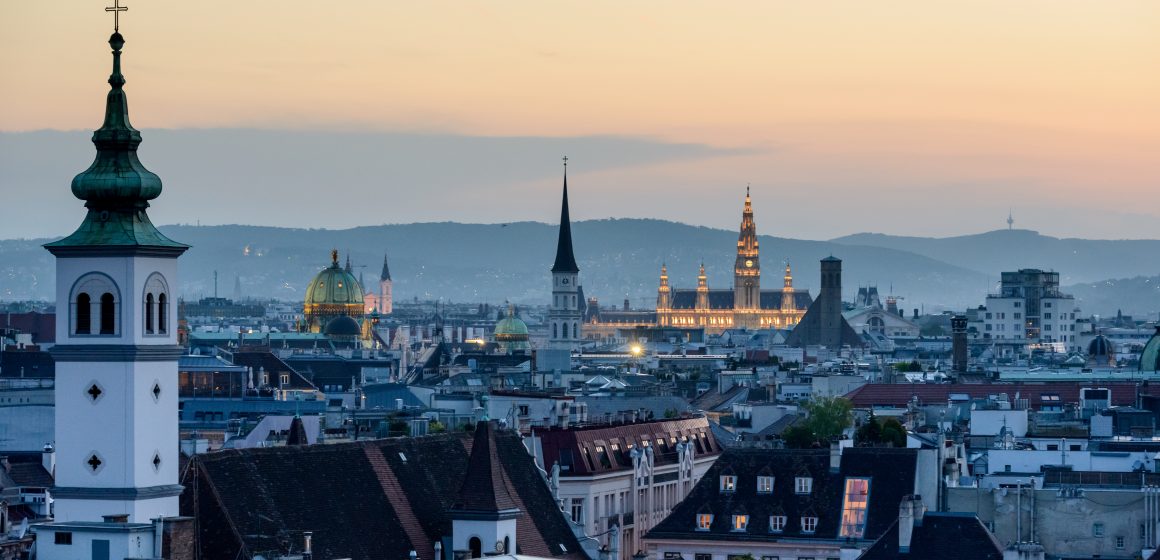The Republic of Austria is celebrating its birthday: this year it will be 100 years old. The decision on its foundation was made on November 12, 1918 in the Parliament on the Viennese Ringstrasse street (then also called German Austria). More than 100,000 people attended the proclamation of the republic in front of the Parliament building.
Almost twice as many people gathered on March 15, 1938, at the Heldenplatz square in front of the Vienna Hofburg, to hear Adolf Hitler’s speech after Austria’s so-called Anschluss to Nazi Germany. In the same year, the November pogroms became the first terrible climax of the persecution of the Jews. – And this tragic chapter of Jewish history, which must never be forgotten, is remembered in 2018.
Austrian History House and sound installation on Heldenplatz square
The culmination of the year of memory will be the opening of the Austrian History House on November 10, 2018 on the Vienna square Heldenplatz. The first thematic exhibition will be devoted to the 100-year history of the republic. From March 12, the day of the Anschluss of Austria to Hitler Germany, the horrors of that time will be reminded by the sound installation on the Heldenplatz square called “The Voices” by artist Susan Filipsch. Twice a day, at 12 hours 30 minutes and at 18 hours 30 minutes, she will be heard for ten minutes.
Along with this, in 2018 other exhibitions are devoted to these memories:
- “City without” in the House of Culture and Cinema Metro (2.3. – 30.12.2018)
In 2016, the Austria film archive announced the discovery of previously missing parts of the Austrian silent film “City without Jews”, filmed in 1924. On March 21, 2018 (at 7.30 pm), the almost complete, restored original version of the film will be shown in the Metro House of Culture and Cinema. Within the framework of the exhibition “City without” the film is a historical excursion. Based on individual scenes, he examines the mechanisms of isolation in society, acting then and now, and depicts the stages of the discrimination process, starting from the polarization of society and ending with the final isolation of the scapegoats created. This trend is described not only in relation to the 20s and 30s of the last century, when anti-Semites demanded isolation of the Jews, but also covers the present time when agitation is again being waged: against foreigners, Muslims or refugees.
- “Conquered Republic. 1918/19 in photos” in the Museum of Vienna (25.10.2018–3.2.2019)
- “Discontinuity and continuity: the fate of the Habsburg heritage after 1918” in Hofmobileendepo (5.12.2018–30.9.2019)
- “Project OT” (permanent installation since November 2018) in 25 locations in Vienna
On the night of the pogroms, November 9, 1938, nearly a hundred synagogues and prayer houses were completely destroyed in Vienna, with the exception of the Stadtempel temple. After 80 years, from November 2018, the synagogues destroyed then will be reminded by light installations in 25 locations in the city. Installations in the form of a twisted star of David protest against oblivion. The Vienna Jewish Museum is conducting a project together with the University of Applied Arts. Artist Brigitte Kovants called upon her students in the field of transmedia art to take part in the competition. The winning project, Lucas Maria Kaufmann, now visualizes what was once destroyed.
Source: https://www.wien.info/ru/sightseeing/museums-exhibitions/memorial-year-2018-100-years-republic

